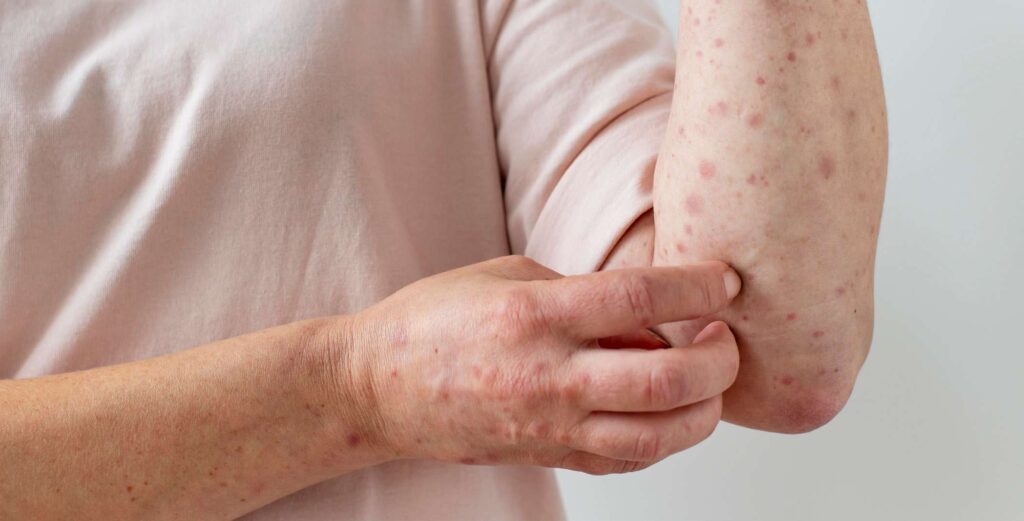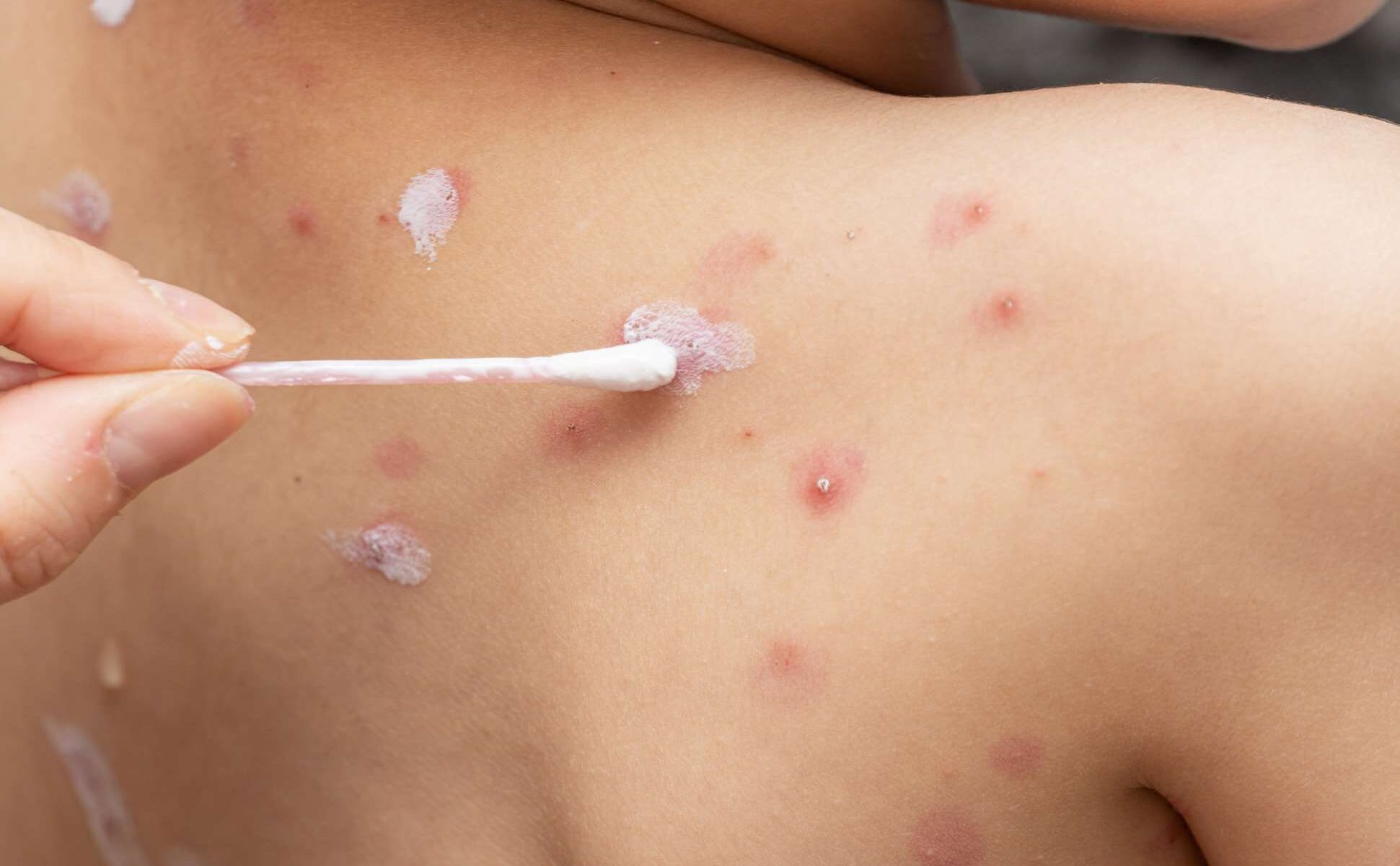Measles is an acute viral respiratory illness characterized by fever, malaise, cough, coryza, and conjunctivitis. It is followed by a maculopapular rash that typically appears approximately 14 days after exposure. Patients are contagious from four days before to four days after the rash appears. The disease is caused by a single-stranded, enveloped RNA virus belonging to the Morbillivirus genus in the Paramyxoviridae family. Humans are the exclusive natural hosts of the measles virus.
Transmission occurs through direct contact and airborne routes. The virus initially infects the respiratory tract and subsequently disseminates throughout the body. Measles is specific to humans and does not affect animals. Common complications associated with measles include otitis media, bronchopneumonia, laryngotracheobronchitis, and diarrhea.
Since the beginning of 2023, measles has been reported in 17 countries within the WHO European Region. By the end of February, over 900 cases had been reported, surpassing the total number reported in 2022.
Notably, there has been an upward trend in measles cases in several regions:
The Russian Federation, Tajikistan, and Türkiye have reported the highest numbers of cases within the past 12 months, with 414, 610, and 466 cases, respectively. Furthermore, Austria, Serbia, the United Kingdom, Uzbekistan, and other countries have observed an increase in cases since the beginning of 2023.
Symptoms
- High fever (lasting four to seven days) appearing 10 to 12 days after virus exposure.
- Initial stage symptoms: runny nose, cough, red and watery eyes, and small white spots inside the cheeks.
- Development of rash starts on the face and upper neck, spreads gradually over three days to the hands and feet. Rash lasts five to six days and fades. On average, appears 14 days after exposure (range: seven to 18 days).
- Measles-related deaths primarily result from complications.
Serious complications more common in:
- Children under five and adults over 20: blindness, encephalitis (brain swelling), severe diarrhoea leading to dehydration, ear infections, and severe respiratory infections like pneumonia.
- Higher risk in malnourished young children, especially those deficient in vitamin A or with weakened immune systems due to HIV or other illnesses.

Those at risk at contracting severe measles
- Infants and children aged less than five years.
- Adults aged more than 20 years.
- Pregnant women.
- People with compromised immune systems, such as from leukaemia and HIV infection.
Contagion
- Spreads through coughing, sneezing, close personal contact, or direct contact with infected nasal or throat secretions.
- The virus can remain active and contagious in the air or on infected surfaces for up to two hours.
- Transmission can occur from an infected person starting four days before the rash appears to four days after the rash erupts.
- In countries where measles has been largely eliminated, imported cases from other countries are a significant source of infection.

Diagnosis
- Physical examination by a healthcare provider for patients presenting with febrile rash illness and clinically compatible measles symptoms, particularly if the person recently travelled internationally or was exposed to a person with febrile rash illness.
- Laboratory confirmation is essential for all sporadic measles cases and outbreaks.
- Measles-specific IgM antibody detection in serum.
- Molecular analysis can be conducted to determine the genotype of the measles virus.
Treatment
- No specific antiviral treatment exists for the measles virus.
- Routine measles vaccination for children, combined with mass immunization campaigns in countries with high case and death rates, is a key public health strategy to reduce global measles deaths.
- Antibiotics should be prescribed to treat eye and ear infections, as well as pneumonia.
- All children diagnosed with measles should receive two doses of vitamin A supplements, given 24 hours apart.
- People without immunity to measles, including infants, may be given the post-exposure measles vaccine within 72 hours of exposure to the measles virus to provide protection against it. If measles still develops, it usually has milder symptoms and lasts for a shorter time.
- Pregnant women, infants and people with weakened immune systems who are exposed to the virus may receive an injection of proteins (antibodies) called immune serum globulin. When given within six days of exposure to the virus, these antibodies can prevent measles or make symptoms less severe.
Recommendations
For Organizations:
- Educate employees about the signs and symptoms of measles, infection prevention and control measures, and the importance of adhering to the guidelines.
- Maintain open lines of communication with employees and encourage them to promptly report any symptoms or concerns related to respiratory illnesses.
- Provide hand sanitizers in common areas such as entrances, meeting rooms, and cafeterias.
- Regularly clean and disinfect frequently touched surfaces such as doorknobs, handles, keyboards, and phones. Increase the frequency of cleaning in common areas and high-traffic areas like the canteen and meeting rooms.
- Ensure proper ventilation in the workplace to improve air circulation.
- Consider remote work options or flexible scheduling for employees affected by measles or for parents whose child has been diagnosed with measles.
- Consider implementing measures such as staggered shifts, limiting the number of employees in shared spaces, or rearranging workstations to allow for increased distance.
- Encourage employees to maintain physical distance from each other, especially in common areas.
- Encourage employees to get vaccinated with the measles-containing vaccine, primarily administered as the combination measles-mumps-rubella (MMR) vaccine. The combination measles-mumps-rubella-varicella (MMRV) vaccine can be used for children aged 12 months through 12 years for protection against measles, mumps, rubella, and varicella. Single-antigen measles vaccine is not available.
- Provide regular updates and reminders about health and safety protocols.
- Advise employees to stay informed about measles through reliable sources such as public health authorities like the European Centre for Disease Prevention and Control website (https://www.ecdc.europa.eu/en/measles) or the Centers for Disease Control and Prevention website (https://www.cdc.gov/measles/index.html) for more information.


General:
- Check for state-wise health-related notices issued by the Ministry of Health as well as the state secretary of health for relevant information and updates specific to your location.
- Dial emergency ambulance services as per your specific location if experiencing severe symptoms such as difficulty in breathing.
- Cover mouth and nose with a tissue or elbow when coughing or sneezing and dispose of used tissues properly. Practice hand hygiene.
- Supportive care should be provided to those infected, including ensuring good nutrition, adequate fluid intake, and treatment of dehydration with WHO-recommended oral rehydration solution.
- Maintain distance from infected individuals to reduce the risk of transmission.




